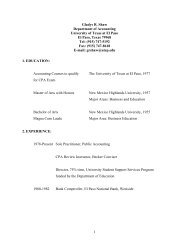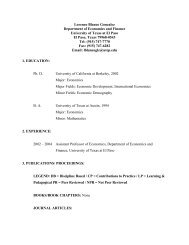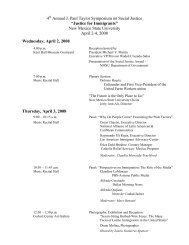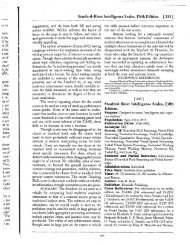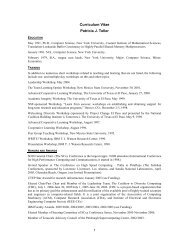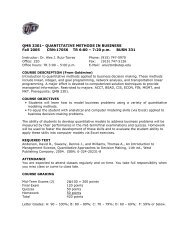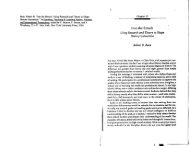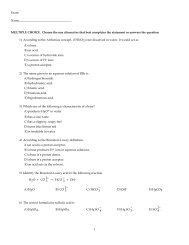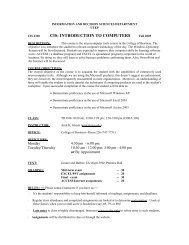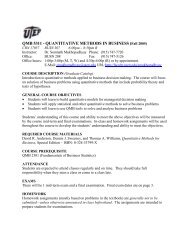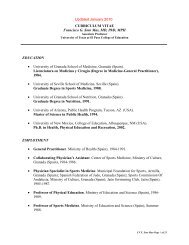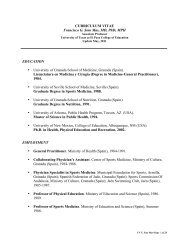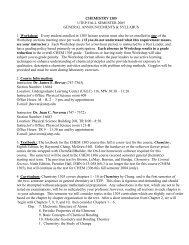Supply & Demand - Faculty.utep.edu
Supply & Demand - Faculty.utep.edu
Supply & Demand - Faculty.utep.edu
You also want an ePaper? Increase the reach of your titles
YUMPU automatically turns print PDFs into web optimized ePapers that Google loves.
ScarcityUnlimited Limite~es /Wants Resour/ChoicesHowto ProduceII'I'L ere Is No Such Thing as a Free Lunc LIIBecause resources are limited, virtually everythingwe do has a cost-even when it seems as ifweare getting something "for free."For example, you may think you are getting afree lunch when you use a "buy one, get one free"coupon. However, while you may not pay for theextra lunch then and there, someone had to pay thefarmer for raising the food, the truck driver fordelivering the food, the chef for preparing thefood, and the server for serving the food.How does business recover these costs? Chance"are that the price of the giveaway is usually hiddensomewhere in the prices the firm charges for itsproducts. As a result, the more a business givesaway "free," the more it has to raise the prices forthe items it sells. In the end, someone always paysfor the supposedly "free" lunch-and that someonemay be you!Unfortunately, most things in life are not freebecause someone has to pay for the production inthe first place. Economic <strong>edu</strong>cators use the termTINSTAAFL to describe this concept. In short,this term means that There Is No Such Thing As AFree Lunch.As shown in Figur~ 1.1, scarcity affects almostevery decision we make. This is where the study ofeconomics comes in. Economics is the study ofhow people try to satisfy what appears to be seeminglyunlimited and competing wants through thecareful use of relatively scarce resources.Needs and WantsEconomists often talk about people's needs andwants. A need is a basic requirement for survivaland includes food, clolhing, and shelter. A want isa way of expressing a need. Food, for example, is abasic need related to survival. To satisfy the needfor food, a person may "want" a pizza or otherfavorite meal. Because any number of foods willsatisfy the need for nourishment, the range ofthings represented by the term want is muchbroader than that represented by the term need.ree B'asic QuestionsBecause we live in a world ofrelatively scarce1.resources, we have to make wise economicchoices. Figure 1.1 presents three of the basic questionswe have to answer. In so doing, we make decisionsabout the ways our limited resources will beused.WHAT to ProduceThe first question is that of WHAT to produce.Should a society direct most of its resources to theproduction of military equipment or to otheritems such as food, clothing, or housing? Supposethe decision is to produce housing. Should its limitedresources be used for low-income, middleincome,or upper-income housing? How many ofeach will be needed? A society cannot have everythingits people want, so it must decide WHAT toproduce.6 UNIT 1 FUNDAMENTAL ECONOMIC CONCEPTS



